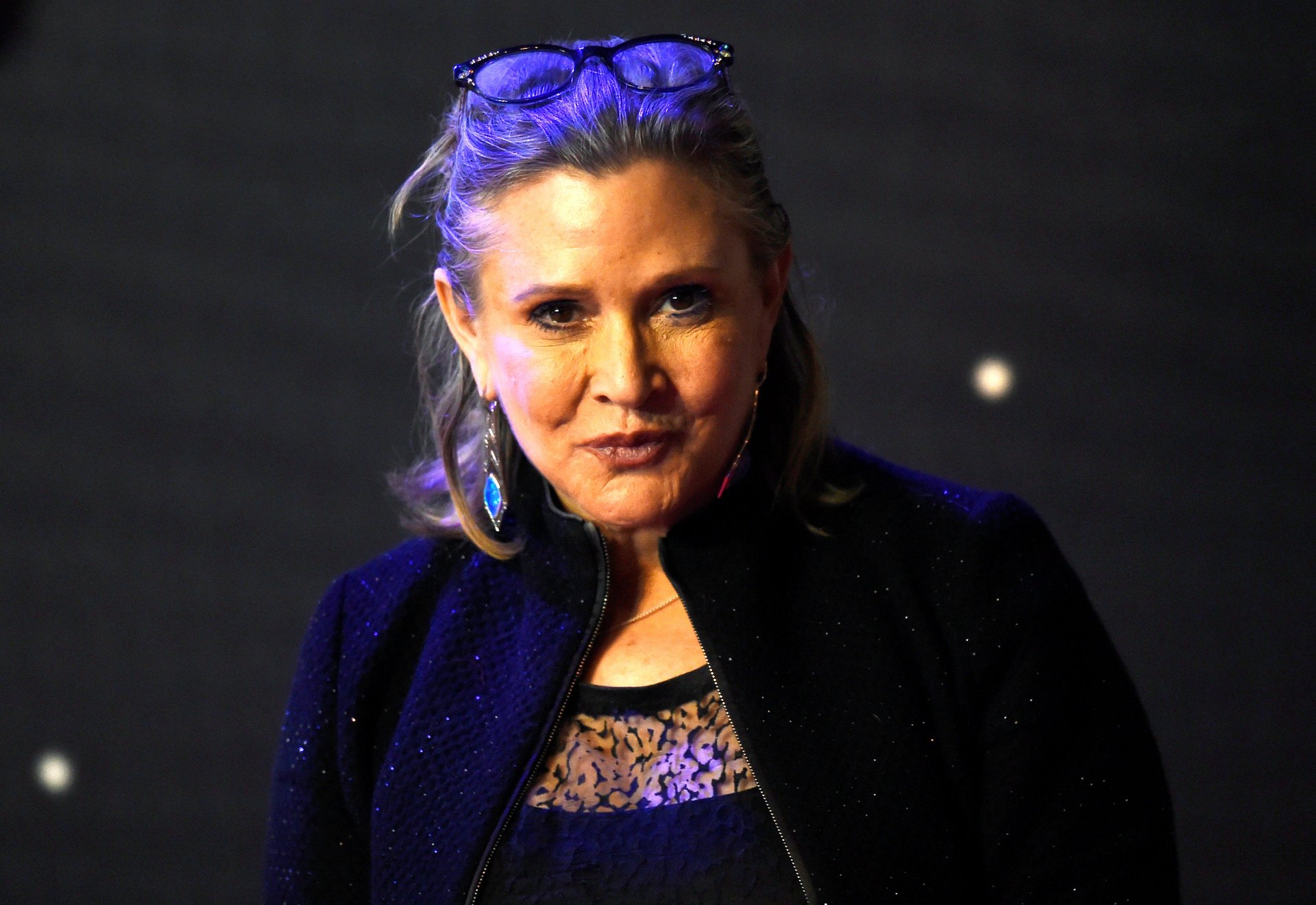Carrie Fisher, best known as Star Wars’ Princess Leia, has died
She was a first crush for many young sci-fi fans, and a hero to many later in life for speaking up about sexism, alcoholism, and mental illness. Carrie Fisher, known around the world as the actress who played Princess Leia Organa in the original Star Wars trilogy, has died following a heart attack. She was 60 years old.


She was a first crush for many young sci-fi fans, and a hero to many later in life for speaking up about sexism, alcoholism, and mental illness. Carrie Fisher, known around the world as the actress who played Princess Leia Organa in the original Star Wars trilogy, has died following a heart attack. She was 60 years old.
Her death this morning in Los Angeles was announced in a statement by her daughter, Billie Lourd, and released by a representative for her family. According to People, it read: “She was loved by the world and she will be missed profoundly. Our entire family thanks you for your thoughts and prayers.”
The public first learned that Fisher had suffered a cardiac incident on a flight from London to Los Angeles on Friday, when the news appeared on tweets and was later confirmed. According to reports, she went into cardiac arrest 15 minutes before landing and was rushed to a local hospital. She was said to be in stable condition on Christmas Day.
Fisher had been in London filming a role in Amazon’s original series Catastrophe.
The daughter of Hollywood stars Eddie Fisher and Debbie Reynolds, Fisher left her home in California in 1973 to study acting in London. Her debut film was Shampoo, starring Warren Beatty.
In 1977, when she played Princess Leia in the first Star Wars movie, she was 19 years old. After acting in The Empire Strikes Back and Return of the Jedi, she went on to star in other films—including When Harry Met Sally and Hannah and Her Sisters. She returned to the Star Wars franchise last year for Star Wars: The Force Awakens. She is also rendered in a digital version of the character in the current film, Star Wars: Rogue One.
She also appeared in Broadway shows, and in the 1990s she became a leading script doctor, whose wit came to the rescue of several films, including Hook, Sister Act, Lethal Weapon 3, and The Wedding Singer. Her semi-autobiographical novel addressing her struggle with drug addiction, Postcards from the Edge, was a bestseller that she reworked as a screenplay for a critically acclaimed film of the same name, released in 1990.
In interviews, Fisher was also candid about her life with bipolar disorder. Earlier this year, she launched an advice column for the Guardian in which offered advice to young people on their problems, including mental illness.
In her introduction to the column, she wrote: “Hilariously—after all the drug addiction and celebration marriage and mental illness and divorce and shock treatment and heartbreak and motherhood and childhood and neighborhood and hood in general—I’ve turned out to be (at close to 70) a kind of happy person (go figure!)”